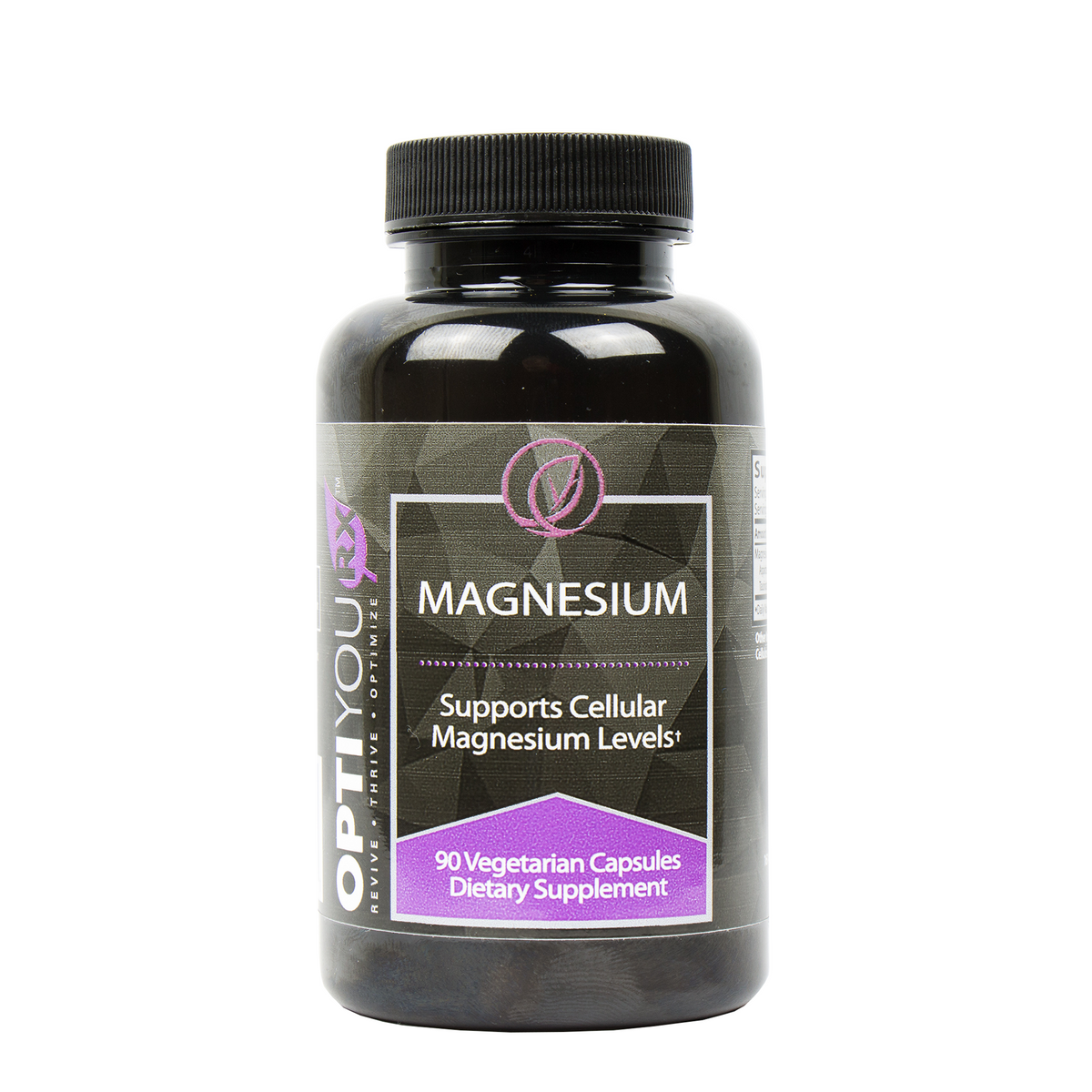Not a day goes by that I don’t talk to someone suffering from anxiety.

Today, I’ll explain how in ***most*** cases this anxiety is actually a deficiency in magnesium.
The Magnesium-Anxiety Link
Magnesium's Role in the Body: Magnesium is not just another dietary mineral; it's a critical component involved in over 300 enzymatic reactions.
Essential for bone health, muscle and nerve function, and energy production, magnesium's influence extends to our mental well-being too.
Dietary Sources of Magnesium: While magnesium is found in foods like green leafy vegetables, nuts, seeds, and whole grains, modern dietary patterns often lead to insufficient intake.
But….I would recommend that you steer clear of many of these nuts, seeds, and grains as they will wreck your gut.
Symptoms of Magnesium Deficiency: A lack of magnesium can manifest in various ways, including increased anxiety, muscle cramps, fatigue, and sleep disturbances.
The Science Behind Magnesium and Anxiety
Neurological Impact: Magnesium plays a crucial role in regulating neurotransmitters, which are key to mood regulation. Its influence on serotonin, dopamine, and GABA can be directly linked to anxiety management.
Stress Response and Hormonal Regulation: Magnesium's ability to modulate stress hormones like cortisol and its role as a gatekeeper for NMDA receptors are crucial in maintaining a balanced nervous system.
Muscle Relaxation and Sleep: As magnesium aids in muscle relaxation and sleep regulation, its deficiency can exacerbate anxiety symptoms, creating a vicious cycle of stress and sleeplessness - giving you MORE ANXIETY.
Magnesium Forms and Dosages for Anxiety
Optimal Forms for Anxiety:
Magnesium Glycinate: Known for its high absorption rate and calming effect.
Magnesium Citrate: Balances absorption with a mild laxative effect.
Magnesium L-Threonate: Especially effective for neurological benefits.
Magnesium Taurate and Malate: Beneficial for heart health and muscle relaxation.
Recommended Dosages:
General: 400-420 mg/day for men and 310-320 mg/day for women, with adjustments during pregnancy.
For Anxiety: Starting with 100-350 mg/day, possibly divided into multiple doses, is advisable.
Recommendations
Choosing the Right Supplement: My personal preference is OptiYouRx's magnesium supplement, designed by pharmacist Billy Wease. Its effectiveness in promoting restful sleep and overall calmness is remarkable.
I personally vouch for it and have had amazing sleep, energy throughout the day, and happy bowel movements 💩. (not an affiliate link below)
Final Thoughts
Before reaching for pharmaceuticals to manage anxiety, consider evaluating and adjusting your magnesium intake.
Most cases of anxiety are not from an anti-anxiety drug deficiency, but rather a lack of essential nutrients like magnesium.
For the deep dive, check out today’s YT video on magnesium and anxiety.
Have an awesome day!
Best,
Hunter
